Excited to discover a tiny remnant of pure black-necks in the far north of Greece, the WPA speak to Emily Damment about how their new conservation project is breaking down barriers

Conservation work is a funny thing. Many of us will be aware that there are groups of dedicated folk working tirelessly behind the scenes to protect, preserve and revive all manner of flora and fauna. But when was the last time we looked up and said, “Hey, you over there with the dishevelled hair and mud up to your armpits, well done for giving up your own time and cleanliness to make life a bit happier for those wading birds”?
One such lot of selfless people belongs to a conservation group called the World Pheasant Association (WPA), whose goal is to conserve galliformes and the habitats they depend on. For those not familiar with the word, galliformes are heavy-bodied ground-feeding birds – those feathered friends that most of us would refer to as game birds. The latest lucky bird to be on the receiving end of the WPA’s attentions is the black-necked pheasant, a close relative to the birds we see today in the UK.
The great-great-grandfather to the pheasants we now shoot for game, they were introduced a long time ago – some say by the Romans, some think the Normans – and were the dominant form in Britain until the 1860-80s. Around this time, breeders and releasers began to work with other species, such as the ring-necked pheasant, which lays more eggs and rears its chicks better than its black-necked cousin.
What is thought to be the last remaining indigenous population of black-necks in Europe resides in the delta of the Greek river Nestos. These little gallies are very important; most of the pheasants we see are bred from hybrid stock and released for shooting, or are descendants of released birds. Their Greek cousins, on the other hand, are wild and genetically pure, but their numbers have declined sharply over the last 50 years due to habitat loss as agriculture nibbled away at the edges of their forest home.
هذه القصة مأخوذة من طبعة November 2017 من Sporting Shooter.
ابدأ النسخة التجريبية المجانية من Magzter GOLD لمدة 7 أيام للوصول إلى آلاف القصص المتميزة المنسقة وأكثر من 9,000 مجلة وصحيفة.
بالفعل مشترك ? تسجيل الدخول
هذه القصة مأخوذة من طبعة November 2017 من Sporting Shooter.
ابدأ النسخة التجريبية المجانية من Magzter GOLD لمدة 7 أيام للوصول إلى آلاف القصص المتميزة المنسقة وأكثر من 9,000 مجلة وصحيفة.
بالفعل مشترك? تسجيل الدخول
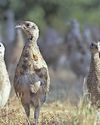
RSPB gives mixed message on shooting
Having recently attended the RSPB’s virtual AGM, Conor O’Gorman discusses the outcome of the charity’s year-long review of game bird shooting
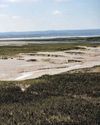
Causeway for concern
Alan Jarrett’s renewed interest in reading takes him down memory lane to an offshore island duck flight that very nearly ended in disaster
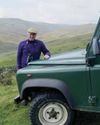
Through a purple patch
The Garrows Estate is taking a conservation-focused approach to restoring the wildlife populations and biodiversity on the Scottish heather moorland.
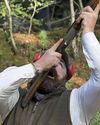
When the wheels fall off
Losing form on a day’s shooting can be infuriating, especially if you’ve been shooting like a god up to that point. Simon O’Leary looks at some common causes and how to remedy them
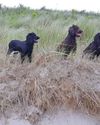
Beaches, books & bad behaviour!
The annual Kay family vacation to Northumberland offers a chance to give the cockers a blast on the beach – although they don’t always shower themselves in glory, as Ryan Kay recalls...
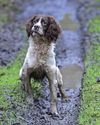
Using the Stop whistle
Now you’ve instilled the basics, it’s time to up the ante with some more tricky distance work. Howard Kirby explains how to take the core Stop whistle command to the next level
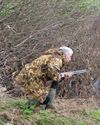
The humble teal
They may be tiny, but as far as Rupert Butler is concerned, the appeal of this little duck is huge. He recalls some of his most memorable nights in pursuit of these aerial acrobats
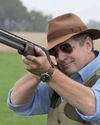
Fab all-rounder
Mike is impressed with the Fabarm Elos B2 Field Notte, which offers great value for money, is suited to fieldwork or clays and is future-proofed for use with steel in all choke constrictions

CALL OF THE WILD
Dom Holtam reconnects with one of the purest forms of shotgun shooting as he walks-up woodcock over pointing dogs in the Scottish Highlands
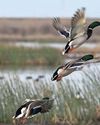
A yen for the Fens
Tony Jackson recounts a memorable duck flight over an area of Fenland in Norfolk with his friend and author, the late Alan Savory